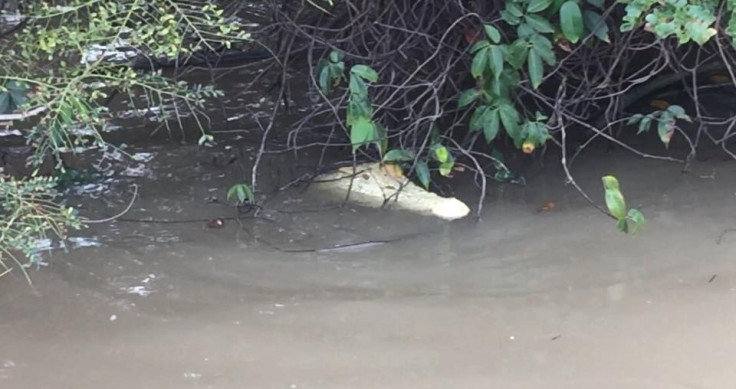Two men slept on roof of stranded car for days as hungry crocodiles circled
The fishermen were forced onto the roof of their car by strong tidal waters infested with crocodiles.
Two men and a dog were stranded for four days and forced to sleep on their car roof after their vehicle became stuck in crocodile-infested waters in Australia.
The predators were circling the car as the men's water supply diminished while they were stranded by tidal waters in a remote area of the Kimberley region in Western Australia. A photo shared by ABC News in Australia showed sleeping bags laid out on on top of the car, which sunk down into the mud in the days before the men were finally safely located.
The men, along with a dog, had been on a fishing trip but got bogged down in the mud after a tidal surge on Friday afternoon (17 November). Police began to search for them on Monday after they failed to return home, and they were found, dehydrated and fatigued, on Tuesday afternoon.
Broome Police Sergeant Mark Balfour told ABC News the men became panicked when they saw a crocodile near the car and subsequently stayed on the car roof while the vehicle was hit by around six tides over the course of several days, flooding it with water numerous times.
"Obviously in the Kimberley here you've got to watch the crocs and snakes, and I believe one of the gentlemen said a croc did come close to their vehicle while they were out there, so obviously they were a bit panicky about that," he said.
"Being out there for five days in this kind of country and with the weather being quite hot, I don't know what would have been going through their heads. They were quite fatigued, dehydrated and heat-struck."
The men were constantly on the lookout for crocodiles, who are currently at their most active due to breeding season, which began in October.
In the same week, an extremely rare mature white crocodile was spotted in the Northern Territory. Staff and customers on the Spectacular Jumping Crocodile Cruise on the Adelaide River saw the croc, dubbed Pearl, who is rare because it is easier for predators to see the pale white colouring.























